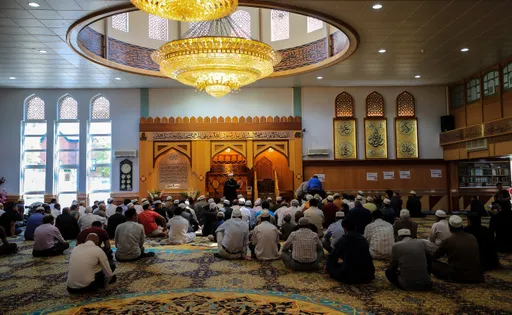The Syrian regime is to blame for a sarin gas attack on the opposition-held town of Khan Shaykhun that killed over 90 people on April 4 this year, according to a new UN report released on Thursday.
The joint report was put together by the United Nations and the Organization for the Prohibition of Chemical Weapons' Joint Investigative Mechanism (JIM) – the United States mission to the UN which was established to determine responsibility for chemical weapons attacks in Syria.
TRT World'sSarah Firth gained exclusive reaction to the report's findings from residents in Khan Shaykhun.
According to the panel of experts who comprised the report, initial findings back claims by the United States, France and Britain that a Syrian regime plane dropped a bomb with sarin on the town.
It said it was "confident” that Bashar al Assad’s regime was responsible for the attack, contradicting denials by the regime and its close ally Russia.
The JIM was unanimously created by the 15-member UN Security Council in 2015 and renewed in 2016 for another year. Its mandate is due to expire in mid-November and Russia on Tuesday vetoed a proposal to further extend its mandate.
The attack prompted a US missile strike against a Syrian regime air base which Washington said was used to launch the strike.
Russia claims that a bomb on the ground was the cause of the gas attack, not an air strike.
The report also said Daesh was to blame for the use of sulfur mustard in the Syrian town of Umm Hawsh on September 15 and 16, 2016.
Russian ambassador to the UN Vassily Nebenzia said earlier this week Russia would consider revisiting the mandate extension after Thursday's report is discussed.
The JIM has already found Syrian regime forces were responsible for three chlorine gas attacks in 2014 and 2015.
The Syrian regime agreed to destroy its chemical weapons in 2013 under a deal brokered by Russia and the United States.
The regime has repeatedly denied using chemical weapons during the country's more than six-year civil war.























